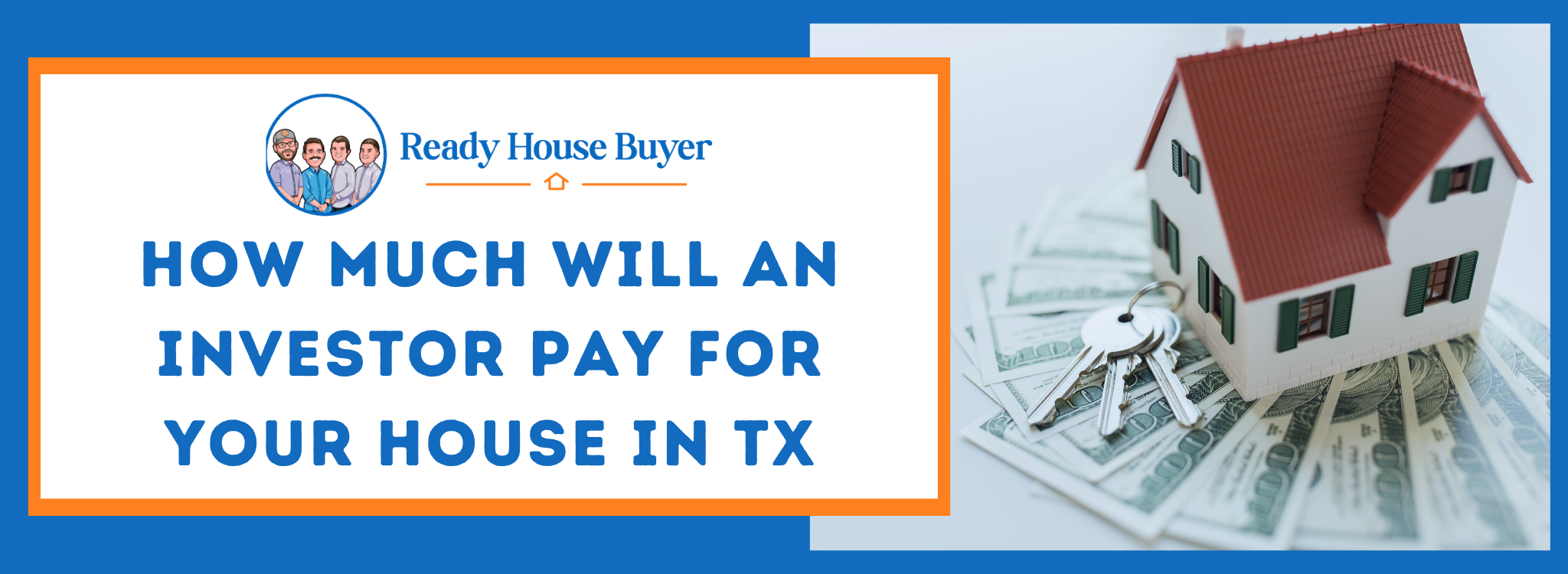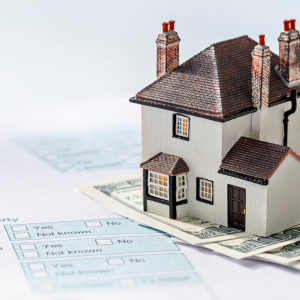
Evaluating the Offer: What Factors Determine How Much an Investor Will Pay for Your House?

Knowing how investors decide on an offer can help you get the best deal when selling a house. They consider location, market trends, and the property’s condition to determine its value. This helps set the right price for your real estate investment in Texas. Below, we explain what investors look at when valuing properties.
Key Considerations Investors Use in Valuing Properties
Investors in real estate pay attention to details when valuing a property. Here are some main factors they consider:
- Market Value: Investors check the fair market value of similar properties in your area. This shows them what buyers are willing to pay.
- Property Condition: If your house is in good shape, you might get a higher offer. Investors look at the need for repairs or upgrades, which can affect value.
- Location: Being close to TX amenities, schools, and business areas is vital for valuation.
- Investment Potential: They assess how much money the property could make as a rental or from resale.
Understanding the Role of Market Trends in Property Offers
Market trends play a significant role in investor offers:
- Texas Housing Market Trends: The housing market affects property demand and prices. A strong market might lead to higher offers, while a weak one might not.
- Real Estate Market Analysis: Investors use regular analysis to predict changes in Texas real estate prices so their offers are competitive and profitable.
Investors and sellers can make better decisions by staying informed about TX real estate trends.

How Location Impacts Investor Offers in Texas
In Texas, location matters a lot. Here’s how it affects offers:
- Proximity to Urban Centers: Properties near urban areas or popular neighborhoods often get higher offers due to more demand.
- Local Market Dynamics: Different areas in Texas have different housing demand levels, affecting property values. TX housing demand can change with new developments or economic shifts.
Knowing these dynamics can help sellers make their property more appealing to buyers.
Common Financial Metrics Used by Investors
Financial metrics are vital in determining property value:
- Cash Flow Analysis: This looks at potential rental income versus expenses to see if it’s profitable.
- Cap Rate (Capitalization Rate): This metric measures the return on investment by comparing net operating income to the property’s market value.
- Comparable Sales: Investors use recent sales data of similar properties in TX to estimate a fair market value.
Different Approaches: How Do Various Types of Investors Determine What to Pay for Your House in TX?

Knowing how different investors decide on the value of your house in Texas is key if you’re considering selling. The Texas real estate market has a mix of investors, each with unique methods and goals for assessing property value. Let’s see how these approaches vary.
Distinguishing Cash Buyers from Institutional Investors
In real estate investing, cash buyers and institutional investors have different strategies:
- Cash Buyers: These investors focus on buying properties quickly without needing a mortgage. In Texas, cash home buyers aim to close deals fast, helping sellers avoid long waits tied to financing. Offers might be a bit lower than market value, but cash deals’ quick and sure nature is a big plus.
- Institutional Investors: These are large entities or funds buying multiple investment properties. They often have more money and resources than individual cash buyers. Their strategy includes long-term appreciation and potential rental income. In Texas, they look at broader trends and future development when valuing properties.

How Local vs. Out-of-State Investors Value Homes Differently
An investor’s perspective can significantly affect property valuation. Local and out-of-state investors approach the Texas real estate market in different ways:
- Local Investors: With firsthand knowledge of specific communities, these investors understand local market shifts well. They offer detailed valuations influenced by neighborhood changes and regional economic factors.
- Out-of-State Investors: These investors usually rely on data and prioritize broad market trends and growth potential. For foreign investors, Texas’s stability and growth are major attractions.
Negotiating with Investors: What Strategies Can Maximize Your House’s Sale Price?

Tips for Presenting Your Home to Achieve Higher Offers
If you’re selling your home in Texas, first impressions are key. Here are some simple ways to make your home attract higher offers from real estate investors:
- Boost Curb Appeal: Make sure your home’s exterior looks inviting. Add some new plants or flowers and keep everything tidy.
- Stage Your Home: Show off each room’s best features. Use neutral colors and remove personal items so buyers can picture themselves living there.
- Use Professional Photos: Quality photos are essential for online listings. They help catch the eyes of serious investors.
These presentation tips can increase your home’s valuation and make it more appealing in the competitive TX property market.

Common Negotiation Tactics and How to Counter Them
Negotiating with real estate investors can be tough, but knowing these tactics will give you an edge:
- Lowball Offers: Investors may start with a low offer, hoping you will negotiate. Prepare a strong counter-offer based on trends in the TX home selling process.
- Pressure to Decide Quickly: Some investors might rush you into deciding. Stay calm and take your time to think over the offer.
- Cash Offers: A cash offer can be tempting due to its quick process. Weigh the convenience against potentially higher offers from other options.
Understanding these tactics helps you confidently sell your home without a realtor in TX, protecting you from underselling.
Leveraging Multiple Offers to Your Advantage
Getting multiple investor offers for Texas homes can give you a strong position:
- Compare Each Offer: Look beyond the price. Check for conditions, closing costs, and repairs that could affect your profit.
- Be Open About Competing Offers: Inform all buyers about other offers. This might push them to present their best terms.
- Know the Market: Learn about the real estate market to see which offer matches your goals best.
By managing multiple offers wisely, you can negotiate better deals and get the most out of your TX property sale.
Essential Repairs or Upgrades That Impact Offers

When selling a home in Texas, the condition of your property can greatly affect its value. Essential repairs and upgrades are key to influencing investor house pricing in TX. Here’s what to focus on:
- Roof and Foundation: Keep your roof and foundation in good shape to maintain your home valuation in Texas. If these structures need significant repairs, investors may offer less.
- Kitchen and Bathroom: Update the kitchen and bathrooms to boost Texas real estate prices. Even small improvements like new fixtures or fresh paint can increase property value in TX.
- HVAC System: A working heating and cooling system is important for attracting buyers. Ensure your HVAC system is in top condition to enhance your home’s appeal.
A thorough home inspection can help spot areas that need attention before putting your property on the market.

Staging Techniques for Attracting Investor Interest
Staging your home well can draw more interest from investors. Here’s how to improve your presentation:
- Declutter and Depersonalize: Remove personal items and clutter so buyers can imagine living there, which can positively affect the Texas home value estimate.
- Neutral Décor: Use neutral colors and simple decor to appeal to more investors and make selling your house quickly in Texas easier.
- Highlight Key Features: To attract real estate investment in TX, show off open floor plans or energy-efficient windows.
Using these staging techniques, you can get better investor offers for TX homes.
Understanding the Importance of Home Inspections
Home inspections are crucial for knowing the current state of your property and preparing for any issues that might arise during the sale. Here’s why they are essential:
- Accurate Valuation: A professional property inspection provides an accurate valuation, matching current Texas housing market trends.
- Identify Potential Issues: An inspection can uncover problems that might lower a home appraisal. Fixing these early can make negotiations smoother and help you sell TX property quickly.
- Transparency: Offering a recent home inspection report can build buyer trust and speed up the transaction.
Understanding the Closing Process When Selling to an Investor

Key Steps in the Transaction Process with Investors
When you work with a real estate investor, here are the important transaction steps:
- Initial Offer: After you show interest in selling, the investor will check out your property and give you an offer. This often means fast cash, cutting down on waiting time.
- Agreement Signing: Once you accept the offer, both of you sign an agreement. This paper includes the sale’s terms and conditions.
- Paperwork and Legal Requirements: Most investors handle the paperwork, but understanding Texas’s legal requirements for property sales is key. Talk to a real estate attorney to stay compliant.
- Home Inspection and Appraisal: While not always needed with investors, some may do a quick inspection or appraisal to settle their offer.
- Finalizing the Deal: After checking everything, both parties finish the deal. This involves paying off any mortgage and completing all necessary legal documents.
- Closing Day: You turn over the keys and receive your payment on this day. The whole process is quick and often finishes within weeks.
How to Handle Paperwork and Legal Requirements
Handling paperwork and legal requirements is a big part of selling a home in Texas. Here’s how to do it well:
- Understand the Documents: Learn about papers like the deed, transfer forms, and settlement statements. These are crucial for legally transferring ownership.
- Consult Professionals: Hire a real estate attorney to help with the tough legal aspects and ensure the accuracy of your paperwork.
- Ensure Compliance: Texas has specific real estate laws; ensure your deal follows these rules to avoid problems later.
- Keep Records: Save copies of all papers, including all contracts and financial statements related to the sale, for your records.
What to Expect Post-Sale: Transitioning to Your Next Home
Once the sale is done, moving to your next home is your next task. Here’s what to do:
- Plan Your Move: To avoid stress, organize your stuff and schedule movers early. Consider decluttering to make moving easier.
- Home Valuation in Texas: Understanding home value in Texas is important if you buy a new home. It helps you make smart choices for your next purchase.
- Financial Management: Use funds from the sale to pay for moving and initial costs for your new home.
- Settle In: Once you’ve moved, take your time to get used to your new place. Moving can be hard emotionally, so give yourself time to adjust.
FAQs:
How Much Do Investors Typically Pay for Houses in Cities in Texas?
Investors often pay less than market value to cover repairs and profit. In Texas, offers usually range from 70% to 85% of the market value, depending on location and condition.
What Factors Influence an Investor’s Offer for a House in Houston?
In Houston, factors include the real estate market, property condition, neighborhood, and local demand. An appraisal or market analysis can help determine your home’s value.
Are There Specific Advantages to Selling My House to an Investor in Texas?
Yes, selling to an investor can lead to a quick sale, flexible closing dates, and fewer contingencies. This is helpful to avoid traditional real estate agents or tenant issues.
How Does Selling a Home Without a Realtor Work in Texas?
Selling directly to an investor means you don’t need a real estate agent, which saves on commissions. Investors often handle appraisals and paperwork, making it a fast cash sale.
What Are Some Strategies for Selling My Texas Property Quickly?
To sell quickly, declutter, stage, and make minor repairs. Highlight your home’s best features, and look into Texas cash home buyers who might give competitive offers.
How Can I Evaluate the Sale Price of My House in Texas?
Check recent sales in your area, get an appraisal, and examine market trends to understand your home’s value. Investors also use this information to decide on a fair purchase price.
What Should I Know About Investor Cash Offers in Texas?
Investor cash offers in Texas are often below market value but offer benefits like a faster sale and fewer hassles from inspections or financing issues. Compare different offers to find a fair deal.
Key Insights
- To know how much an investor will offer for your house in a Texas city, analyze the TX real estate market and current housing trends.
- In places like Houston, investor offers depend on property evaluation and available Texas home sale options.
- The Lone Star State’s housing market trends affect how much investors might pay for homes across Texas.
- Use strategies that attract TX cash home buyers looking for quick deals for a fast home sale in TX.
- We review Texas house appraisals to provide competitive investor cash offers and ensure transparency in the quick sale of Texas property.
- Navigating the Texas real estate market means understanding brokerage dynamics, lien implications, and how to sell without a realtor.
- Check the Texas real estate prices and do a market analysis to estimate your house’s cost and attract potential investors.
- Investor home buying in TX often works with real estate agents to efficiently handle tenants and finance matters.
- Find investors for your TX home by looking at Texas house price evaluations and using investor purchase price TX tactics.
Are you wondering how to sell a house in Texas? Whether you’re in Dallas, Houston, San Antonio, Austin, Fort Worth, El Paso, or any surrounding area, this guide will provide valuable insights to make the process easier. Not only do these findings apply statewide, but we can also help simplify the process by offering to buy your house directly. If you need assistance or want to sell your home quickly, don’t hesitate to reach out to us at (214) 225-3038. We’re here to help!


